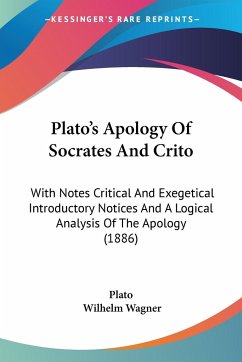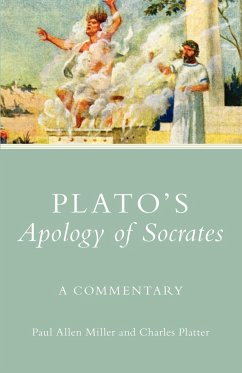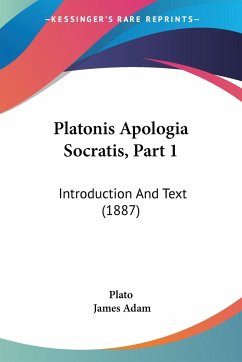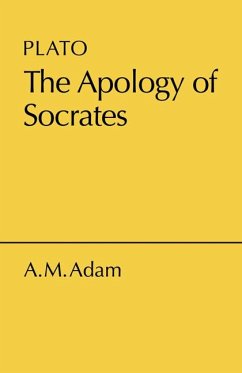
Plato's Apology Of Socrates And Crito
With Notes Critical And Exegetical Introductory Notices And A Logical Analysis Of The Apology (1886)
Versandkostenfrei!
Versandfertig in 1-2 Wochen
23,99 €
inkl. MwSt.

PAYBACK Punkte
12 °P sammeln!
Plato's Apology of Socrates and Crito is a book that was published in 1886. It contains two of Plato's famous dialogues, Apology and Crito, which explore the trial and death of Socrates. The book is accompanied by critical and exegetical notes, introductory notices, and a logical analysis of the Apology. The Apology is a defense of Socrates against charges of impiety and corrupting the youth, while Crito is a dialogue between Socrates and his friend Crito about whether or not Socrates should escape from prison. The book provides readers with a deeper understanding of Socrates' philosophy and h...
Plato's Apology of Socrates and Crito is a book that was published in 1886. It contains two of Plato's famous dialogues, Apology and Crito, which explore the trial and death of Socrates. The book is accompanied by critical and exegetical notes, introductory notices, and a logical analysis of the Apology. The Apology is a defense of Socrates against charges of impiety and corrupting the youth, while Crito is a dialogue between Socrates and his friend Crito about whether or not Socrates should escape from prison. The book provides readers with a deeper understanding of Socrates' philosophy and his commitment to the truth, even in the face of death. The critical and exegetical notes help readers to better understand the text and its historical context, while the logical analysis of the Apology provides a detailed breakdown of the arguments presented by Socrates. Overall, Plato's Apology of Socrates and Crito is a valuable resource for anyone interested in philosophy, ancient history, or the life and teachings of Socrates.This scarce antiquarian book is a facsimile reprint of the old original and may contain some imperfections such as library marks and notations. Because we believe this work is culturally important, we have made it available as part of our commitment for protecting, preserving, and promoting the world's literature in affordable, high quality, modern editions, that are true to their original work.












